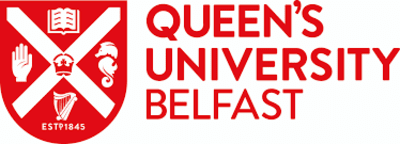
MSc Advanced Professional Practice
Queen's University Belfast

Key Information
Campus location
Belfast, United Kingdom
Languages
English
Study format
On-Campus
Duration
1 - 3 year
Pace
Full time, Part time
Tuition fees
GBP 19,100 / per year *
Application deadline
Request info
Earliest start date
Request info
* International fee
Introduction
This taught Masters programme nurtures talented and innovative professional practitioners, placing practice at the forefront. The programme is delivered through nine specialist pathways, enabling students from different professional backgrounds to review and update their practice and benefit from shared learning and then contribute to improving the quality and effectiveness of health and social care provision globally.
This programme produces exceptional practitioners who have:
- Skills necessary to promote and enhance innovative and emerging practice
- Intellectual and transferable skills necessary in positions of leadership
- Skills enabling the review and application of contemporary evidence to practice
The programme and pathways will appeal to practitioners working in a wide range of practice areas who are committed to their own personal and professional development. Graduates of this programme move into senior practice roles, management and leadership positions, or progress onto a career in research or education.
The specialist pathways are:
- MSc (Critical and Acute Care)
- MSc (Cancer Nursing: Supportive and Palliative Care)
- MSc (Leadership and Management)
- MSc (Mental Health Care)
- MSc (Care of Older People)
- MSc (Midwifery Care)
- MSc (Care of Children & Young People)
- MSc (Intellectual Disabilities)
- MSc (Practice Education)
Admission to a specialist pathway often requires students to be working in a related area. The Programme Co-ordinator will provide individual advice on module choices at enrolment.
The programme is offered on a full-time or part time basis and combines face-to-face teaching with online delivery. Those taking the programme on a full-time basis may be eligible to do so incorporating a Clinical Practicum by the agreement with the Programme Co-ordinator.
Advanced Professional Practice Highlights
This is a flexible programme that students can adapt to serve the needs of their career.
Career Development
This course will appeal to registered nurses and midwives working in a wide variety of areas who are thinking about their own career progression.
This programme produces exceptional practitioners who have the skills necessary to promote and sustain innovative and emerging practice. Graduates of the programme go on to positions of leadership or research and teaching careers.
Student Experience
Students from different professional backgrounds come together on this programme and share expertise, review their own practice and share balanced and critical findings that contribute towards the improvement of the quality and efficiency of delivery of healthcare on a global scale.
Admissions
Curriculum
Course Structure
Advanced Professional Practice Specialist Pathways
The pathways have been developed recognising that students are committed to personal and professional development. We have developed nine pathways and supporting modules, some of which require the student to be working in a relevant area of practice. To graduate with the MSc in Advanced Professional Practice with a specialist pathway, students must complete one of the compulsory research modules, two pathway-specific modules, three optional modules, and a dissertation.
Pathway 1: Leadership and Management
The leadership and management pathway offers students the opportunity to develop their knowledge, critical thinking and skills in leading and managing services across health, social care and independent sectors. The pathway modules focus on leadership and management theories and models and their practical application to the transformation and delivery of care and support in the context of multi-agency collaboration and service design and delivery.
Pathway 2: Midwifery Care
The midwifery care pathway, open to Registered Midwives or those eligible for registration as a midwife with the Nursing and Midwifery Council, offers students the opportunity to develop their knowledge, critical thinking, and skills in the contemporary advances and developments in midwifery care and support. The pathway develops the knowledge of midwives to enable the provision of infant, women, and birthing people-centred care, and the support of their families. The pathway modules focus on advances and developments in midwifery practice and the provision of evidence-based, safe, effective care within maternity services and in the context of inter-disciplinary team collaboration.
Pathway 3: Critical and Acute Care
The critical and acute care pathway offers students an opportunity to develop their knowledge, critical thinking and skills in the assessment, care and support of patients in critical and acute care services, including respiratory, cardiac, anaesthetics, HDU and ITU settings. The pathway modules focus on the assessment and management of patients in critical and acute care environments and the delivery of safe and effective care and support in the context of inter-disciplinary team collaboration.
Students completing this pathway must be an NMC registered Adult Nurse, or eligible to join the NMC register as an Adult Nurse. Some modules require experience in specific areas of practice.
Pathway 4: Mental Health Care
The mental health care pathway offers students the opportunity to develop their knowledge, critical thinking and skills in contemporary advances and developments in mental health practice to enable the delivery of empathic, holistic assessment and care of patients experiencing mental ill-health and the support of their families and carers. The pathway modules focus on advances and developments in mental health care and treatment and delivery of safe and effective mental healthcare services in the context of inter-disciplinary team collaboration.
Pathway 5: Cancer Nursing: Supportive and Palliative Care
The cancer pathway offers students the opportunity to develop their knowledge, critical thinking and skills in the specialist knowledge and skills required to deliver contemporary, holistic, high-quality evidence-based care for patients with cancer and the support of families and carers. The pathway modules focus on biomedical aspects of cancer and holistic care and the design and delivery of cancer services through strategic leadership in the context of inter-disciplinary team collaboration.
Pathway 6: Care of Older People
The care of older people pathway offers students an opportunity to develop their knowledge, critical thinking, and skills in contemporary advances and developments in the care and support of older people. The pathway modules focus on the assessment and management of older people across primary, secondary, and tertiary care, frailty and rehabilitation, and health and well-being in later life in the context of inter-disciplinary team collaboration.
Pathway 7: Intellectual Disabilities
The intellectual disabilities Pathway offers students the opportunity to develop their knowledge, critical thinking, and skills in the contemporary advances and developments in intellectual disability practice to enable the delivery of empathic, holistic assessment and care for people with intellectual disabilities and the support of their families and carers. The pathway modules focus on advances and developments in intellectual disability care and support and delivery of safe and effective services in the context of inter-disciplinary team collaboration
Pathway 8: Care of Children & Young People
The children and young people pathway offers students the opportunity to develop their knowledge, critical thinking and skills in the contemporary advances and developments in the care and support of children and young people in the delivery of empathic, holistic care of patients and the support of their families and carers. The pathway modules focus on advances and developments in the care and support of children and the delivery of safe and effective care and services for children and young people in the context of interdisciplinary team collaboration.
Pathway 9: Practice Education
The practice education pathway offers students the opportunity to develop their knowledge, critical thinking, and skills in contemporary theories and models of practice education to enable the delivery of clinical interventions to meet the needs of patients in a range of care settings. The pathway modules focus on education research, theories, models, assessments, skills teaching and evaluation to support the delivery of safe and effective skills sharing and clinical interventions in the context of inter-disciplinary team collaboration and person-centered care.
Research Modules and Dissertation
All students must undertake at least one of these modules:
Applied Research Methods and Statistics in Nursing; OR Qualitative Research Methods
All students must undertake a 15,000-word dissertation, focusing on evidence of critical appraisal, analysis and thinking to support rational and cogent arguments and practice discussion at the Master’s level.
Specialist Optional Modules
Students can combine modules from the specialist pathways above with a selection of options including:
- Clinical Inquiry and Applied Practice-Based Research
- Pharmacotherapeutics for Practice
- Independent Study Module
Please note that modules are subject to viable numbers, so the modules offered may vary. If you are interested in a subject that is not listed above, please contact the school for advice.
Learning and Teaching
Learning opportunities associated with this course are outlined below:
Learning Environment
At Queen’s, we aim to deliver a high-quality learning environment that embeds intellectual curiosity, innovation and best practices in learning, teaching, and student support to enable students to achieve their full academic potential.
On the MSc in Advanced Professional Practice, we do this by providing a range of learning experiences that enable our students to engage with subject experts, develop attributes and perspectives that will equip them for life and work in a global society and make use of innovative technologies and a world-class library that enhances their development as independent, lifelong learners.
Teaching is across a combination of morning, evening, and afternoon classes with some modules being taught entirely online.
Examples of the opportunities provided for learning on this course include; lectures, practical experiences, E-Learning technologies, Self-directed study, and added value qualifications to enhance employability.
Assessment
Assessments associated with the course are outlined below:
Students must successfully complete six modules including one compulsory research module and a dissertation. The pass mark for all taught modules and the dissertation is 50 percent. Each module is assessed by coursework (some modules have a written examination).
Career Opportunities
This Masters in Advanced Professional Practice offers an opportunity for students to develop skills of analytical thinking within a clinical context. Alongside this, the programme facilitates the student's continued professional development. Graduates of this programme progress into management and leadership roles, or continue into a research or education capacity.
Queen's postgraduates reap exceptional benefits. Unique initiatives, such as Degree Plus and Researcher Plus bolster our commitment to employability, while innovative leadership and executive programmes alongside sterling integration with our local world-class healthcare providers help our students gain key leadership positions both nationally and internationally.
Prizes and Awards
Applicants are welcome to apply for the Patricia Napier scholarship;
Graduate Plus/Future Ready Award for extra-curricular skills
In addition to your degree programme, at Queen's you can have the opportunity to gain wider life, academic and employability skills. For example, placements, voluntary work, clubs, societies, sports and lots more. So not only do you graduate with a degree recognised from a world-leading university, you'll have practical national and international experience plus wider exposure to life overall. We call this Graduate Plus/Future Ready Award. It's what makes studying at Queen's University Belfast special.
Gallery
Accreditations
Scholarships and Funding
How do I fund my study?
The Department for the Economy will provide a tuition fee loan of up to £6,500 per NI / EU student for postgraduate study.
A postgraduate loans system in the UK offers government-backed student loans of up to £11,836 for taught and research Master's courses in all subject areas. Criteria, eligibility, repayment, and application information are available on the UK government website.
International Scholarships
Program Tuition Fee
English Language Requirements
Certify your English proficiency with the Duolingo English Test! The DET is a convenient, fast, and affordable online English test accepted by over 4,000 universities (like this one) around the world.